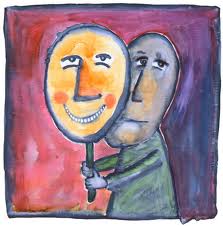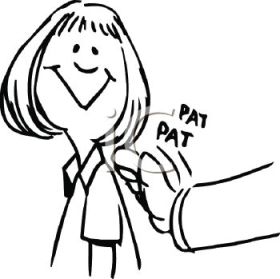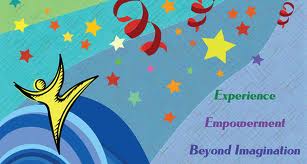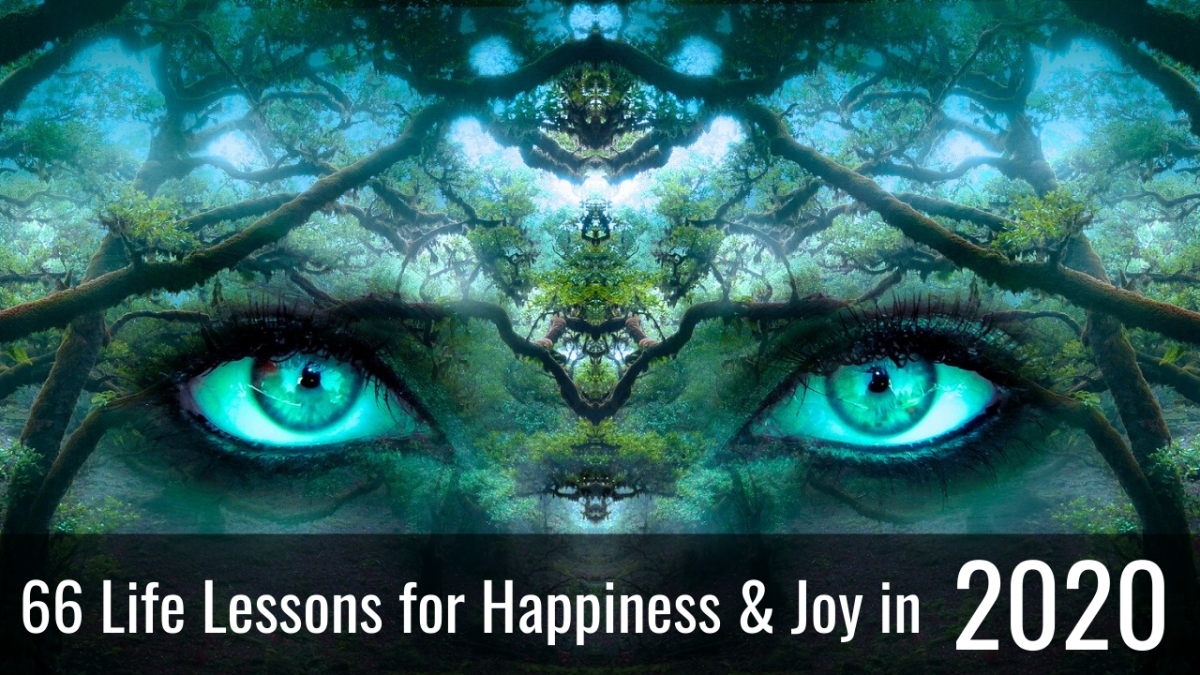Self Help for The Mistakes of Being Too Nice (Life Coaching Courses Series)
Another in the Series of Life Coaching Courses
In another series of Life Coaching Courses: Self Help for The Mistakes of Being Too Nice - How Being Nice Can Actually Hurt You
Being too nice is a character flaw. Nice people are well intentioned. But it can adversely affect our relationships and suck energy from our lives. We get in our own way, and our habits end up being self defeating. With a little insight in life coaching courses, we can become aware of what we are doing and turn our detriment into an asset.
It starts in childhoold when we are taught and rewarded for being nice. We do what we are told, become passive instead of pushy and gain a sense of satisfaction when we help others.

Being Too Nice Causes an Imbalance in Our Lives
Niceness needs a balance. It is important to be sensitive to others needs. It is healthier to be considerate to others and it does bring a degree of happiness. We seek rewards for being nice by getting approval of others. After all, it is very nice when other people think we are wonderful. We share the planet and it is actually beneficial to create avenues of comraderie and cooperation. It is vital that we each make the world a better place. Nice behavior and attitudes can serve us all well.
To Please Others We Sacrifice Something of Ourselves
However, there needs to be a healthy balance. Sometimes in trying to be nice and pleasing others we take on too much or we seek to make things perfect. This can be exhausting and energy draining and cause a negative toll on us emotionally and physically. As this life coaching course explains, our niceness can lead us to be vulnerable and to being overloaded, and to give up a part of ourselves at a great cost.
Some characteristics of niceness include:
- suppressing your feelings of angers
- telling white lies
- irrational reasoning
- giving advice
- being a rescuer to others
- protecting people
Are Your Feelings Incongruent With Your Niceness?
When we give up too much of ourselves, we lose some of our own integrity and we lose touch with our own emotional and psychological selves. Our own feelings matter very much. Sometimes our feelings are incongruent with our niceness. When we stifle our feelings we lose touch with ourselves and our emotions. The result can cause us to lose touch with our inner feelings. Denying our feelings will cause greater problems for ourselves than the rewards of being nice at times. We become a hostage to the feelings we don’t want to deal with. Blocked feelings can cause us to lose touch with our real selves. Being authentic is an important and mentally healthy thing to do in learning from life coaching courses.
It is also important to be aware that sometimes people don’t want our advice, or to be rescued or protected by us. Sometimes they just want someone to listen to them. Sometimes they want to help themselves. These things may be unconscious efforts to control others, and help us feel better about ourselves. But the problem is they invalidate other people’s feelings.

Giving Up Your Old Messages that Inhibit Your True Self
We adapted habits of niceness to gain social acceptance, avoid our own emotional pain, and to help others thereby bolstering our own needs. Sometimes we won’t give up being nice because we don’t know what else to do. We want to be nice, and don’t know what the alternative would be. But with some greater self awareness, we can reshape our actions and thoughts and change in ways that will end up being more gratifying for ourselves.
Life coaching courses are designed to help guide you. It is a matter of slight tweaking, so that we balance niceness with genuineness. When we can change our self perspective just a bit, allow ourselves to process our feelings, no matter what we are feeling, and help others while also respecting them.
Our inner messages are deeply embeded within us from our parents and other authority figures from our childhood. Giving up these old messages is the hardest part of gaining a better sense of ourselves and balancing our niceness.
There are great benefits that await you when you learn to be nice, but not to the point it hurts you:
- you will feel a sense of obligation and expectations from others
- you will be able to say no easier and avoid overwhelming yourself
- you wil learn to ask for what you want and get it
- you will be able to express your anger and have healthier relationships
- you will respond appropriately when you feel criticized
- you will be able to speak the truth
- be a caring person without overloading yourself
- have more positive relationships
- fell a sense of competency

Do You Look for Approval and Acceptance From Others?
You don’t have to be perfect. Even after you master the concept of balancing being nice, you will still encounter difficult situations. Life is never a panacea. But you will be able to put yourself in a better situation and become a more effective nice person.
In trying to be nice, you may try to please everyone. In trying to please everyone you are guaranteed to please no one.
One of the main errors of judgements in being too nice comes from our need to be accepted. In order to be accepted we believe we have to be perfect. We become preoccupied with getting that smile, that pat on the back, positive feedback, and approval, applause, praise, a bonus, or some recognition that we are noticed.
.
People May Only Conditionally Accept You
But the truth is that acceptance by others is not the same by all. People often use conditional acceptance -
- possible acceptance is accepting you or not
- partial acceptance is only accepting certain aspects of what you do or parts of who you are
- temporary acceptance is accepting you for a limited time
- this derives from people accepting you only as long as you meet their standards
- putting up with you until they don’t have to
- Accepting you only if you please them
In looking at conditional acceptance it is healthier to not define yourself by the standards of others. By using this as a measurement of your own self worth, you are letting others direct your life, determine how you feel about yourself, and let it affect your self value and ego. This affects your own happiness, self fulfillment, and self esteem. Life coaching courses can help you be happier and more fulfilled.
You Deserve to Be Accepted Just as You Are
A healthy alternative is to just believe you are accepted. However people accept you, make yourself comfortable with that. Accept yourself, look to fill your life with people who love you and like you just the way you are. And as far as the others go, ask yourself what it feels like if you are not accepted by them. What is the worst feeling you are dealing with. Work on what that worst feeling means and you will achieve a high level of self improvement and self acceptance.
Whatever you do, whatever you can do, provided it is not hostile, malicious or harmful to others, should be enough. Value who you are. Get yourself off the people pleaser treadmill now, before you keep expending energy that can be used for a greater good.
We Fool Ourselves Into Believing We Need to Be Accepted by Everyone
It is an illusion to think that acceptance by others will help you feel more secure. You insecurity is something that interferes with your needs. Summon up the strongest, best part of who you are and what you know about you. You don’t need to be ultra nice to compensate for your insecurities and imperfections. Accept these, embrace these with the knowledge that everyone has insecurities and imperfections. You are human and part of this big planet filled with millions of people who will accept you for who you are, or take what they can from you because you are too nice.
It is very important in life coaching courses to have a level of self awareness. Self awareness starts with your own personal boundaries, so you don’t give too much of yourself. By being true to yourself, you will find people who accept you for who you truly are. Everyday and in every circumstance you make choices about how you will let people treat you. Some of these choices are made at an unconscious level. The more aware you make yourself of your decisions, the more you can work at the unconscious rational and habits that drive us to react and behave in a certain way. On our deepest level, it is not easy to control the urges we have to qualm our insecurities and basic needs. A qualified therapist can help you understand yourself better.
There is a Cost in Trying to Get Approval ... What Are You Willing to Have it Cost You?
If you choose the path of self help, look at your self perceptions:
Feeling undeserving - think about what you do with the praise others give - What feels like enough? Where does the praise and good feelings go within you? How do you accept the kind words?
How desperate are you to be accepted? Are there real logical reasons for needing this acceptance, or do you give the need for acceptance more value than it deserves?
Do you feel the need to do things perfect? Do you blame yourself if you are not accepted? What does it feel like if the fault of you not being accepted was with the other person?
Niceness is Good, Balance is Better
Instead of looking for approval and acceptance of others, ask yourself important questions about what you are thinking, and doing. Answer these life coaching course questions: How much is acceptance worth compared to what it costs you continuing this way? What do you want for yourself, and what if there are people out there who are willing to accept you for who you are, imperfections and all. You may never know, if you continue to be too nice. Niceness is a good quality. Considering yourself is important. Balance in your life is a healthier quality. Seek balance, and you can still be a nice person

More Life Coaching Courses by ToKnowInfo
Look for more Life Coaching Courses below to read and learn:
Life Coaching Course The Psychological Triggers that Make Us Do the Things We Do
Life Coaching Course: Making It Through Life's Toughest Moments
Life Coaching Course Knowing and Trusting Yourself Part 1
Life Coaching Course Knowing and Trusting Yourself Part 2
Life Coaching Course: Do We Really Know What Makes Us Happy?
Life Coaching Course: Redirecting Ourselves - Picking Up the Pieces











